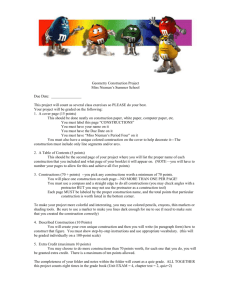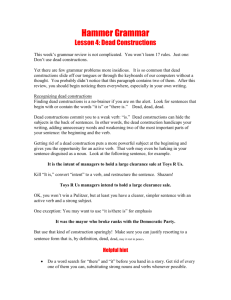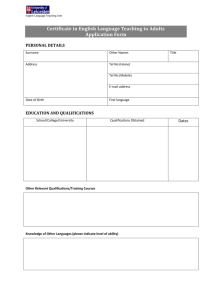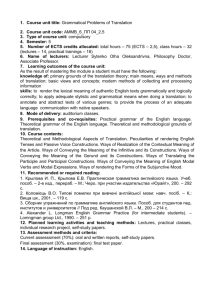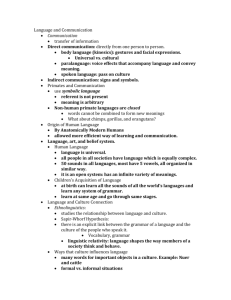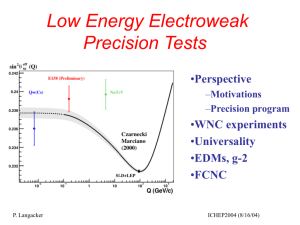Imperative constructions in English print ads
advertisement
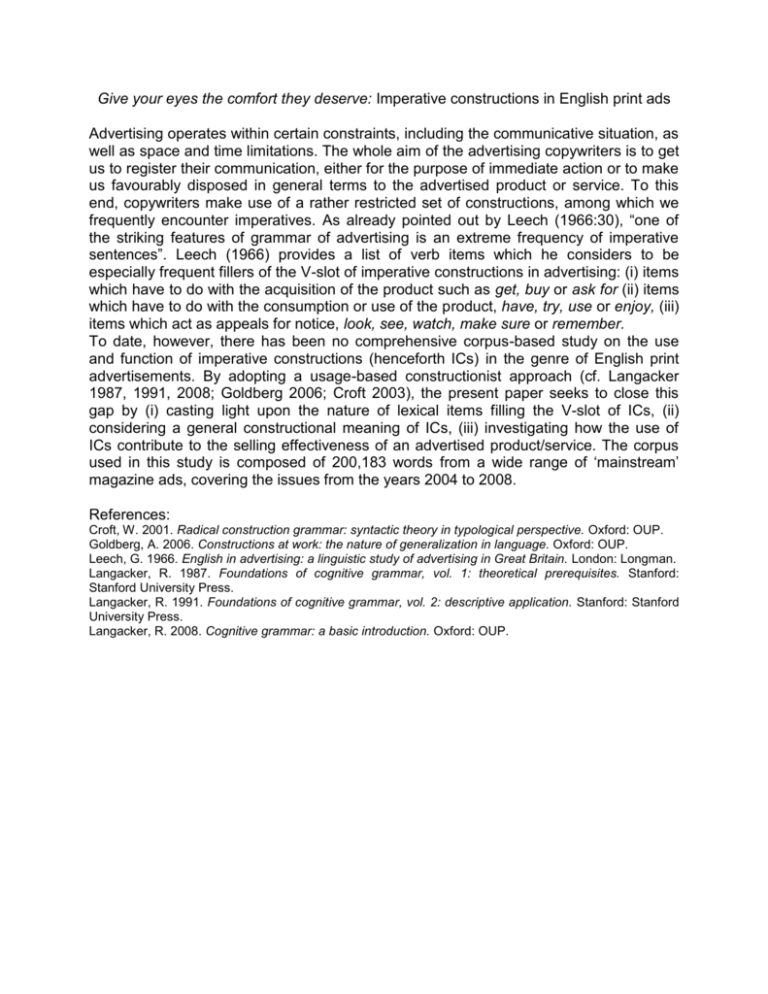
Give your eyes the comfort they deserve: Imperative constructions in English print ads Advertising operates within certain constraints, including the communicative situation, as well as space and time limitations. The whole aim of the advertising copywriters is to get us to register their communication, either for the purpose of immediate action or to make us favourably disposed in general terms to the advertised product or service. To this end, copywriters make use of a rather restricted set of constructions, among which we frequently encounter imperatives. As already pointed out by Leech (1966:30), “one of the striking features of grammar of advertising is an extreme frequency of imperative sentences”. Leech (1966) provides a list of verb items which he considers to be especially frequent fillers of the V-slot of imperative constructions in advertising: (i) items which have to do with the acquisition of the product such as get, buy or ask for (ii) items which have to do with the consumption or use of the product, have, try, use or enjoy, (iii) items which act as appeals for notice, look, see, watch, make sure or remember. To date, however, there has been no comprehensive corpus-based study on the use and function of imperative constructions (henceforth ICs) in the genre of English print advertisements. By adopting a usage-based constructionist approach (cf. Langacker 1987, 1991, 2008; Goldberg 2006; Croft 2003), the present paper seeks to close this gap by (i) casting light upon the nature of lexical items filling the V-slot of ICs, (ii) considering a general constructional meaning of ICs, (iii) investigating how the use of ICs contribute to the selling effectiveness of an advertised product/service. The corpus used in this study is composed of 200,183 words from a wide range of ‘mainstream’ magazine ads, covering the issues from the years 2004 to 2008. References: Croft, W. 2001. Radical construction grammar: syntactic theory in typological perspective. Oxford: OUP. Goldberg, A. 2006. Constructions at work: the nature of generalization in language. Oxford: OUP. Leech, G. 1966. English in advertising: a linguistic study of advertising in Great Britain. London: Longman. Langacker, R. 1987. Foundations of cognitive grammar, vol. 1: theoretical prerequisites. Stanford: Stanford University Press. Langacker, R. 1991. Foundations of cognitive grammar, vol. 2: descriptive application. Stanford: Stanford University Press. Langacker, R. 2008. Cognitive grammar: a basic introduction. Oxford: OUP.

